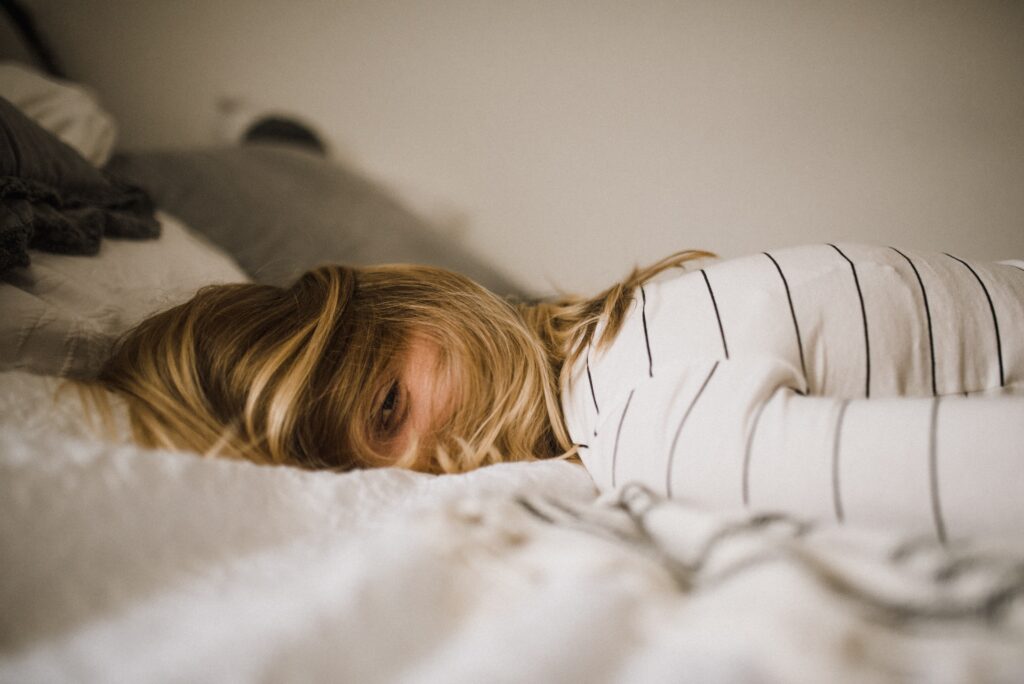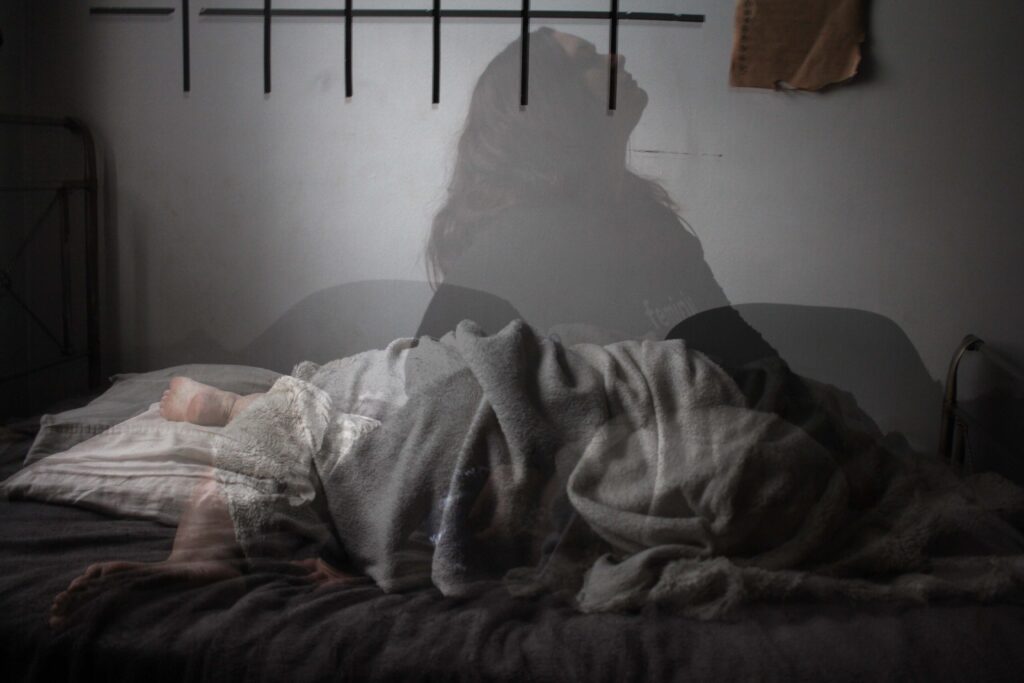
CBD Gummies for Sex. Do they Really Work?
Can CBD really help with erectile dysfunction, menopause, and low libido? The short answer is yes, CBD gummies for sex do work if they come

Anyone who has suffered from insomnia knows how frustrating it can be. You’re desperately tired until you lie down to sleep. But as soon as your head hits the pillow, you’re wide awake. All you want to do is sleep but you can’t.
Then when you finally do fall asleep, your alarm rings and you have to get up. You feel tired in both mind and body. It’s frustrating knowing that you face another night, and another night, of the same routine.
People who don’t get enough “deep, restorative sleep,” as opposed to cat naps, are at risk for quite a few health issues.
At the very least, they have problems concentrating, or remembering tasks. They become irritable with family, friends and even total strangers.
But our physical health suffers as well. Our bodies need that “restoration” part of restorative sleep.
Studies have shown that people who are consistently sleep-deprived have a weakened immune system .This means it’s easier to catch a cold or the flu, and takes longer to fight illness off. Even conditions like adult-onset diabetes have been linked to a lack of sleep. This is because sleep loss impacts insulin production.
So, getting enough sleep every night is essential.
There are many reasons why someone may be unable to sleep.
Sometimes it’s not chronic. If you’re worrying about a test the next day, or having to get up in front of your colleagues to give a speech, you may well lose sleep that night. But once the cause of that anxiety is removed the next day, you’ll probably go back to normal!
Chronic insomnia is something else again. This happens every – single – night.
Chronic insomnia can be caused by mental health issues such as chronic anxiety or PSTD (post-traumatic stress disorder.)
It can also be caused by physical issues; issues such as chronic pain due to arthritis or restless leg syndrome.
We’re aware that certain medications cause drowsiness – but others can actually cause wakefulness! Then there’s caffeine from coffee, tea or even chocolate, which also causes wakefulness.
Rather than taking sleeping pills, which can be addictive, one solution is to use CBD.
CBD (Cannabidiol) is an extract (or “cannabinoid”) from the cannabis plant that has medicinal properties. It is not a hallucinogenic like THC (tetrahydrocannabinol) – the ingredient in marijuana. This means that is has no psychoactive properties. It will not get you “high”.
Our bodies are one big chemical factory. Chronic anxiety and/or chronic depression are believed to be caused by either too high or too low, levels of certain “neurotransmitters.” A too low level of the neurotransmitter serotonin, for example, is linked to both depression and anxiety.
Researchers believe that CBD interacts positively with specific “receptors” in our central nervous system (CB1 receptors) and peripheral nervous system (CB2 receptors) . These work to bring the level of serotonin and other neurotransmitters back where they need to be. In this way CBD works to promote “homeostasis,” or the equilibrium of our body’s chemical factory.
By doing so, pain and anxiety are alleviated in many sufferers.

CBD is often associated with sleep… but why is that? Well, Dr. Michael Breus, a clinical psychologist, and sleep doctor says that “we also know it helps with lower inflammation. We know that lower inflammation helps with sleep.” It’s also been shown to have therapeutic potential for the treatment of insomnia.
Also, in a 2013 study, researchers found that by administering small amounts of CBD to rats increased the total sleeping time.
It’s also well documented that with no anxiety or pain to keep the mind active, it’s much easier to fall asleep and stay asleep for a prolonged period of time.
After a good night’s sleep, we wake up refreshed and ready to face the day. Problems that seemed insurmountable the day before are now manageable.
There is no substitution for a good night’s sleep. And CBD combined with good sleep practices seems to be a winning combination.
CBD interacts with the endocannabinoid system, whereas melatonin is a hormone that’s produced by the pineal gland.
As such, melatonin doesn’t put you to sleep, instead it helps your body recognize it’s time to sleep. It works with the chemical makeup of the brain.
CBD, on the other hand, works with the CB1 and CB2 receptors in the body. These receptors are responsible for stress response, immune system, autonomic nervous system, and many other systems relating to our physiological and cognitive processes.
All this to say, CBD and Melatonin work with different systems. Depending on what your sleep challenge is one could be recommended over the other or used in unison together.
It’s important to note that scientific studies and regulations surrounding CBD and other related products are still developing. The information in this article should not be substituted for medical or legal advice. Always talk with your doctor before trying any supplement or substance.
If you are taking medication for chronic anxiety or depression, talk to your doctor about the benefits of CBD.

Can CBD really help with erectile dysfunction, menopause, and low libido? The short answer is yes, CBD gummies for sex do work if they come

After a good night’s sleep, we wake up refreshed and ready to face the day. Problems that seemed insurmountable the day before are now manageable.

1% of Pure Organics revenue goes towards environmental projects that make a difference.